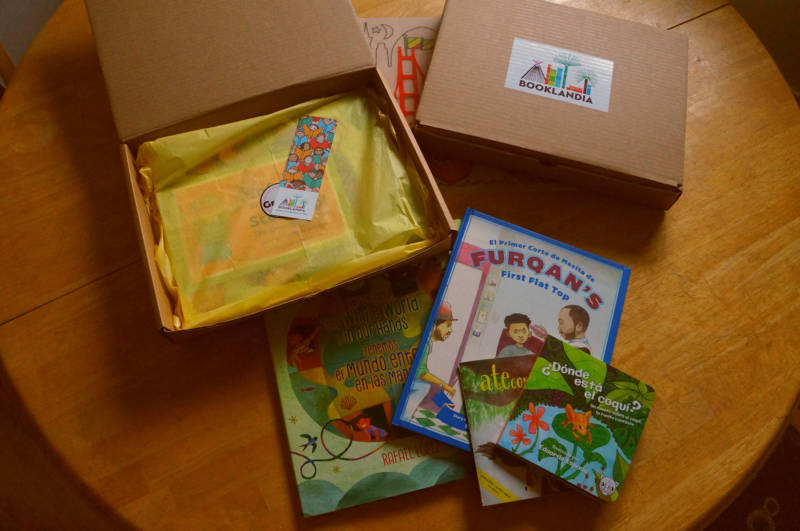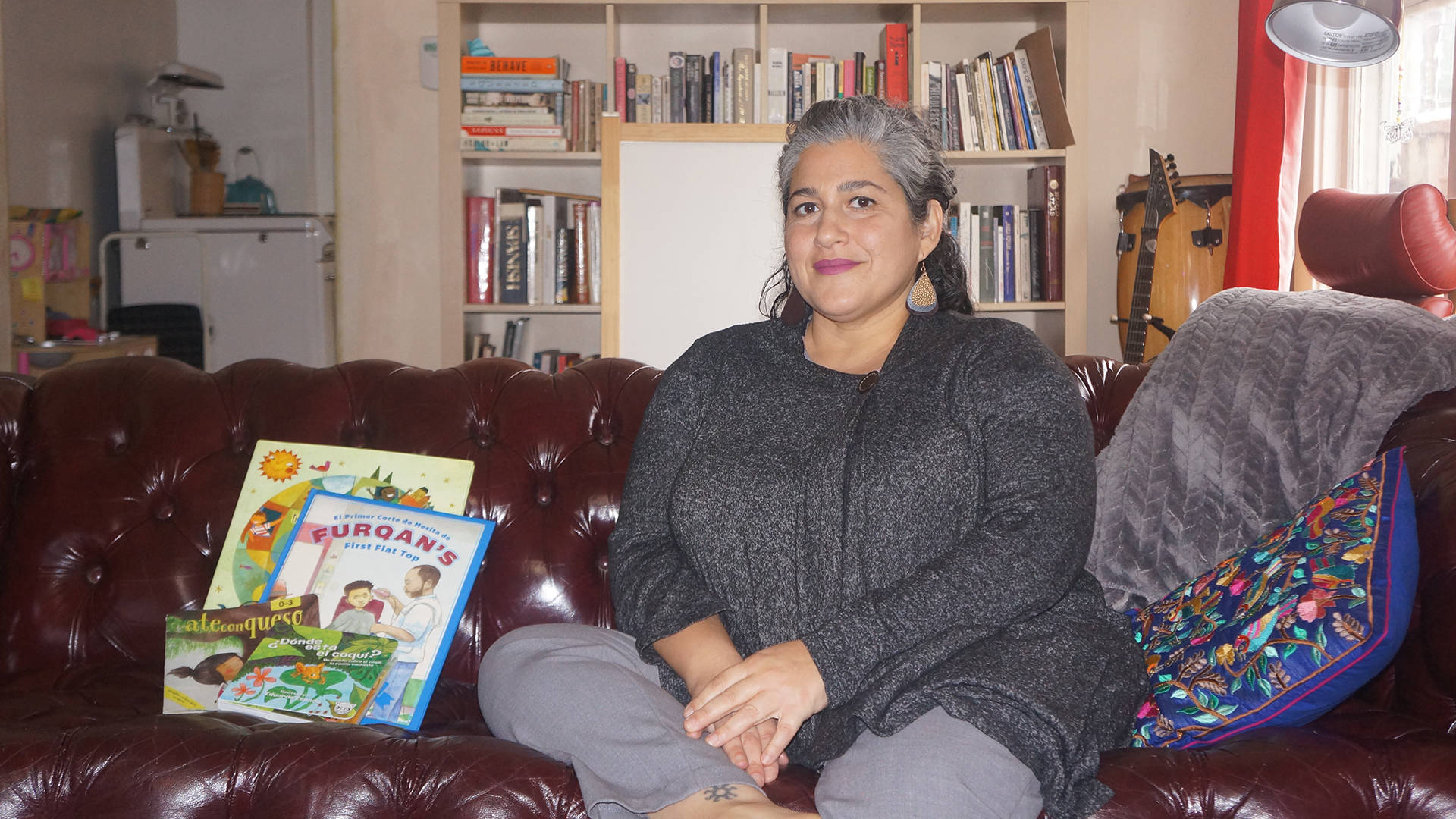Maceo Cabrera Estevez sits comfortably barefoot on her leather couch at home in East Oakland, just off of Seminary Avenue. A bookcase filled with children’s books takes up nearly an entire wall of her living room, making it the focal point of the cozy space. Estevez homeschools her children Omar and Azalea, eight and six, and her love of literature and eagerness to pass it on is immediately noticeable.
“I was the Avon lady of books, with children’s books,” an elated Estevez says of starting Booklandia, a subscription box service that helps parents of bilingual kids—and those who want to learn Spanish—get access to quality books by Latinx writers mostly based in the United States.
The name Booklandia alludes to a fairytale of sorts. In Spanish, the suffix “-landia” loosely translates to “the land of”—Disneyland becomes “Disneylandia,” for instance. Booklandia is, indeed, the magical world of Spanish-language and bilingual books in Oakland. “When you get books [from Booklandia], you’re going into a world,” Estevez says. “That’s what reading is about.”
Past Estevez’ kitchen (where the book subscription service got its start back in 2016), boxes of books by dozens of authors fill a storage room. “I did this as a service to families who are raising bilingual kids,” Estevez says. “It has been common conversation of people having a difficult time finding authentic literature.”
Making sure that Booklandia’s books represent a wide variety of Spanish-speaking communities has been a crucial part of Estevez’ business. She remembers getting a request from a biracial family in Spain looking for books that featured Black characters. “Her husband is African, and she wanted books that had Black children in them,” Estevez says of shipping a translation of Anna McQuinn’s series, Lola, all the way across the pond.
For Estevez, finding books that are not just translated but authored by Latinx writers is also essential. She mentions how, oftentimes, books originally written in English do not reflect Latinx culture and upbringings: the authenticity of Latinx identity isn’t there, and neither is the richness of Spanish vocabulary. One author she likes in particular is San Francisco native Monica Brown, whose book, Esperando el Biblioburro (Waiting for el Biblioburro, or Library-on-a-Donkey), tells the real story of teacher and librarian Luis Soriano Bohórquez, who travels with his donkey through the valleys of rural Colombia to bring literature to kids in remote villages.

The desire to raise bilingual kids is nothing new: the California Department of Education reports that in the fall of 2017, roughly 42.3 percent of the state’s public school students spoke a language other than English at home. In recent years, bilingual education has become more commonplace. In 2016, Prop. 58 allowed schools to implement bilingual education according to students needs, repealing a decades-long ban.



